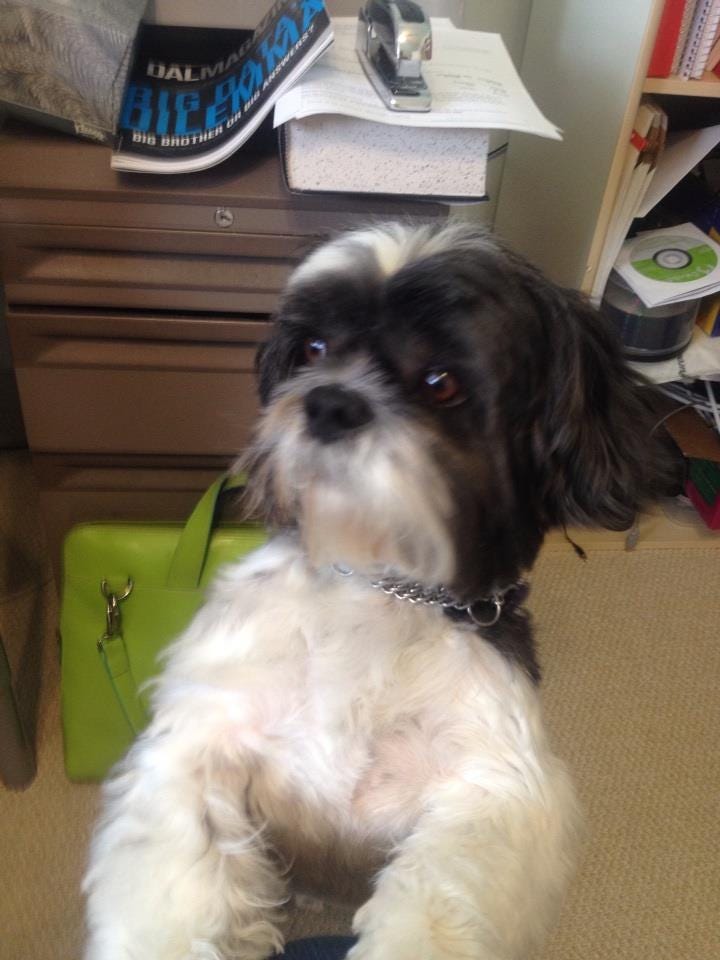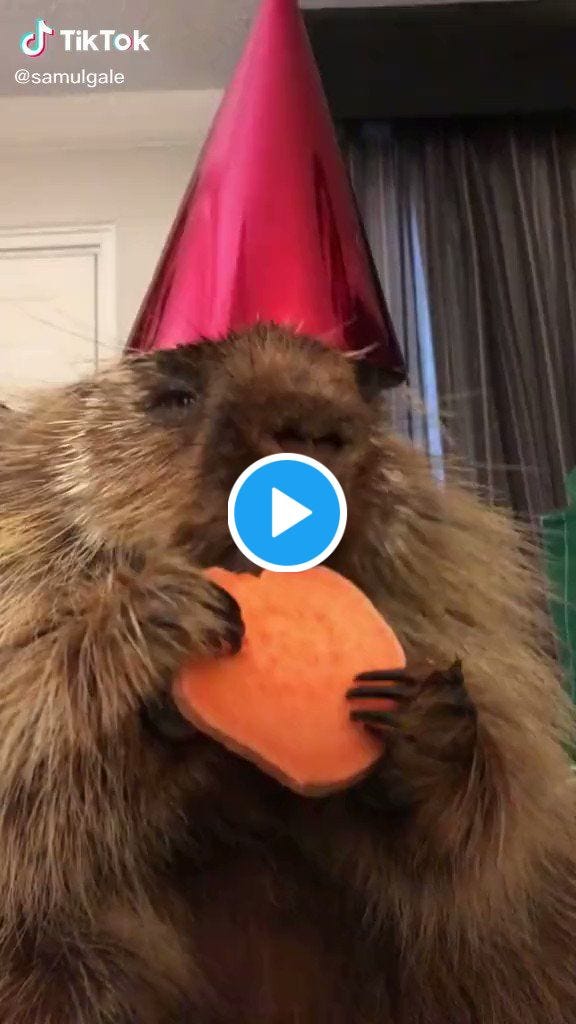Take note
Observations on observing
Are you okay? I’m lucky: my little house and the humans inside it are all doing fine. But it’s an anxious time. Connection, compassion and creativity all matter more than ever. I have some thoughts—and would welcome hearing your thoughts too. Let’s help each other through this.
Craft: Watch closely
A friend had asked on Facebook for inspiring quotes, and one of my favourites, from singer/songwriter Bill Withers, immediately sprang to mind: “You can’t get to wonderful without passing through all right.” It’s a line I come back to when I’m struggling with a piece of writing, inspiration that reassures me that the effort is worth it, as I improve a sentence bit by bit, getting it from not great to hmm to all right…and eventually, I hope, to wonderful. I’d barely hit “post” on his quote when the news of Withers’ death popped onto my screen as well. His family had announced that he’d died of “heart complications”—and the first thought through my mind was that heart complications were what he wrote so beautifully about as well.
Withers is probably best known for songs like “Ain’t No Sunshine”, “Lean on Me”, “Just the Two of Us” and “Lovely Day”, but one of my favourites is a bit less known, “Grandma’s Hands.” What I love about that song is that it is built around a series of small but powerful pictures or scenes involving his grandmother’s hands:
Grandma's hands
Clapped in church on Sunday morning
Grandma's hands
Played a tambourine so well
Grandma's hands
Used to issue out a warning
She'd say, "Billy don't you run so fast
Might fall on a piece of glass
"Might be snakes there in that grass"
Grandma's handsGrandma's hands
Soothed a local unwed mother
Grandma's hands
Used to ache sometimes and swell
Grandma's hands
Used to lift her face and tell her,
She'd say "Baby, Grandma understands
That you really love that man
Put yourself in Jesus hands"
Grandma's handsGrandma's hands
Used to hand me piece of candy
Grandma's hands
Picked me up each time I fell
Grandma's hands
Boy, they really came in handy
She'd say, "Matty don' you whip that boy
What you want to spank him for?
He didn't drop no apple core"
But I don't have Grandma anymoreIf I get to heaven I'll look for
Grandma's hands
His focus is tight, but his storytelling sweeps wide. I hear those lyrics, I see those hands—and then I see my own grandmothers’ hands, and think of their stories and their influence on my life and the lives of those they touched. As we’re all tucked in tight, constrained by COVID-19, Withers’ lyrics are a good reminder that while our view might be small, our insights can still be meaningful.
And I think too of Withers’ line about “passing through all right.” I don’t know about you, but I’m still finding it tough to turn all this home-time into “productive creativity.” First, I’m still working (like crazy, to be honest, as my King’s MFA colleagues and I figure out how to offer what was supposed to be a 9-day in-person writing residency for 60 MFA students into an online residency that will still deliver inspiration, connection and creative focus for our students). Second, the buzz of anxiety we’ve been living with for months isn’t dissipating, and I know I’m not the only one grinding my teeth, coping with disrupted sleep and experiencing weird aches and pains (left scapula today, though the good news is that this month’s 16-day menstrual cycle appears to have ended). And still, I know I’m lucky: I share my home with people I love, so have company and support—and a small yard that feels as valuable as an estate acreage these days.
But the words aren’t exactly flowing, and when they do…well, “all right” seems like a destination some distance down the road, and “wonderful” seems like it might be a province or two away, past at least a couple of RCMP provincial border checkpoints.
So what to do? Two thoughts occur to me. First, a lesson from Buddy. When we’re out for a walk and he spots something that just isn’t quite right—a carved pumpkin on a front step (can you imagine what that looks like to a dog, all jagged teeth and huge head?), a big garbage bag that wasn’t there yesterday, a weird noise coming from behind that thing over there—he doesn’t pretend everything is normal and simply carry on. He stops. Still. And he watches whatever it is. He might take a step or two closer to see if he can gather a bit more info—a whiff or a better look. And when he’s either figured it out or determined it’s not an immediate threat, he carries on. (If he thinks it’s scary, he switches into “get the fuck out of here” mode, with the quick back up or the even hastier rocket-in-the-opposite-direction.) But most of us humans don’t give ourselves permission to do this. We see something weird or scary—and immediately start trying to talk ourselves out of whatever it is we’ve noticed. Let me take that out of the distancing second-person: My impulse is to not look dumb by looking scared, so my response can look like a non-response, ignoring whatever is out of the ordinary. But Buddy knows better: when something is off, we need to stop and pay attention to it. Notice it. Watch it. And keep an eye on it even if we’d rather pretend we’re too cool to be worried.
Second: A couple of years ago, I came across the phrase “ground truth” in a novel about a character who was, I think, an entomologist. As I recall it, in the book, she would stake out a 1-metre square in a field, and examine it closely to extrapolate insect populations and yield possible insights about the larger environment. When I looked up the phrase, I discovered that it’s used in many fields, and refers to information provided by direct observation rather than by inference. Watching, closely, provides information that can yield valuable insights.
It strikes me that right now, though I may not be feeling at my most creative, I can still observe, take note, record what is in front of me. Against the hum and buzz of anxiety and rumour and worry, I can be thankful for “all right” and I can ground myself by grounding truth.
Exercises
Remember this: Draw inspiration from Withers’ “Grandma’s Hands.” Think about someone you love, and focus tightly on one thing about them: a phrase they use, a habit they have, a body part, a single moment with them. Write all that you can associated with that one thing. Sift through your memories and observations. Choose 3-5, and craft a portrait in a paragraph or two.
Pick an observation point, Version 1: Choose a window, and for a week, spend 10 minutes each day looking out that window and recording what you see. Choose the same time every day—or vary it up with different times each day. Highlight a phrase or few words from each day, and use them to craft a paragraph about your week of attention.
Pick an observation point, Version 2: Choose a window, open it, and for a week, spend 10 minutes each day listening and recording what you hear. Choose the same time every day—or vary it up with different times each day. Highlight a phrase or few words from each day, and use them to craft a paragraph about your week of attention.
Pick an observation point, Version 3: Choose a window, open it, and for a week, spend 10 minutes each day recording what you smell. Choose the same time every day—or vary it up with different times each day. Highlight a phrase or few words from each day, and use them to craft a paragraph about your week of attention.
What I’m reading: Make It Scream, Make It Burn by Leslie Jamison
Jamison’s The Empathy Exams remains one of my favourite essay collections of the last decade, and her latest collection, Make It Scream, Make It Burn is so far just as compelling. The first essay, “52 Blue,” about the loneliest blue whale on the planet, feels particularly timely, as an exploration about loneliness and connection and the way we humans make metaphors of the things around us, projecting our concerns and compulsions onto whatever captures our imagination.
Other good stuff:
Read “This is a season” by Janet Gibson is an essay that appeared in The Guardian earlier this week, passed on to me by my friend Diana McLaren. It is lovely and wise, with concrete advice for all of us trying to figure out how to cope in these weird and stressful times.
Watch See a short clip of Bill Withers at the 2:00 mark in this video, from the book Wisdom.
Listen Interested in hearing more from Leslie Jamison? Check out this interview with her on the Longform podcast. There’s also a haunting essay from her in the New York Review of Books, about having COVID-19, alone in her apartment with her two-year-old toddler.
Book industry stuff
Support your local indie bookstore: Here in Halifax, we have some wonderful options: The King’s Co-op Bookstore, Bookmark and Woozles are all offering options for mailing, drop-off or curbside pick-up. Check out this map with links to other Canadian indies who are open for business.
Online readings and activities for kids of all ages: Check out these lists of Canadian authors doing readings for kids online: one is ReadAloud, a new program and the other a roundup of author activities. Plus there’s this one of US authors.
Help for Canadian writers: The Writers’ Trust of Canada and The Writers’ Union of Canada have launched a fund to help authors. Application deadline is April 9.
Latest Canadian book industry stats: From BookNet.
Courses, communities & stuff
One of the soon-to-graduate students in the King’s MFA program messaged to tell me how adrift she was feeling as she leaves our program in the middle of all of this, and I told her I’d start sharing a list of links to online courses, communities and other ways to anchor ourselves to creative communities. If you have ideas for others to add, send them along and I’ll include them in the next e-newsletter (or you can also add them in the comments at the bottom of the web version of this e-newsletter).
Writers’ Federation of Nova Scotia is offering a number of online courses.
The Princeton Public Library in New Jersey is offering nine 90-minute sessions with writers speaking on craft, featuring my colleague Lorri Neilsen Glenn, among others.
Creative Nonfiction Magazine offers a range of online courses, with the current offerings taking registration until midnight April 3. They also have a self-guided course, Writing the Tough Stuff, that starts April 20.
Corporeal Writing, the writing space created by author Lidia Yuknavitch, offers a range of online workshops.
Vancouver author Chelene Knight (Dear Current Occupant) offers community, courses and connection through Learn Writing Essentials.
Grub Street in Boston offers a range of online and remote courses.
Ditto Gotham Writers in New York.
Marion Roach Smith, author of The Memoir Project, offers online courses and mentoring.
U of T offers creative nonfiction and life writing courses online.
Tweets & stuff
Hope and beauty


Cuddles
The sound of happiness
Obligatory picture of Buddy
Buddy says “Hey, whatchya doin’?”

The stuff at the bottom
I’m a writer, editor and teacher. This is my personal e-newsletter on the craft of writing nonfiction, sprinkled with occasional feminism and social justice. You can find out more about me on my website at kimpittaway.com. You can also find me on Facebook and Twitter. I’m the executive director of the MFA in Creative Nonfiction limited residency program at the University of King’s College in Halifax, Nova Scotia, Canada. If you’re interested in writing a nonfiction book, you should check our program out!
And finally
Share your online course and community recommendations, links to cool things writers and others are doing to get through all of this and whatever else strikes you in the comments section of the web version of this post.





Aach! Blame blurry brain (and try saying that three times fast): above, in the Craft section, I reference the switch from "we" to "I" as a switch from second person to first. Of course, it's not: it's a switch from first-person plural to first-person singular. Thank you to Rona Maynard for her keen editor's eye.